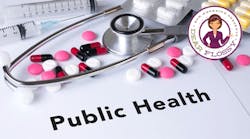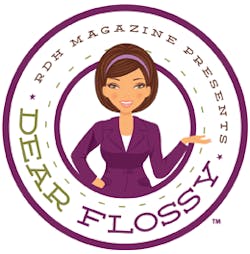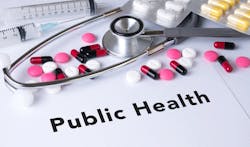Dental hygiene career alternatives: Breaking into public health
Dear Flossy,
First I would like to thank you for starting this column. I have been desperately looking for some good advice and a mentor to guide me for two years. I have been working as a dental hygienist for seven years in Toronto. I have a bachelor’s degree in Science and Dental Hygiene. Before that I was a dental assistant for 4 years.
For the past two years I have been forced to reduce my work hours to four to five hours per day due to pain in my neck (Trapezius Myalgia) and carpal tunnel syndrome. I have been managing the pain with reduced work hours, exercise, and occasional pain medications. This has reduced my income and increased my frustration. I have only worked in clinical dentistry all my life and know nothing else. After sulking for two years and blaming my profession for my situation, I have finally managed to pull myself out of my misery and decided to do something about it.
I have been thinking of career alternatives but can't decide which option is good for me and where to start. I am interested in working in public health or as a dental hygiene educator. I would be grateful if you can provide some insight into both fields. I want to know what kind of employment I can get in public health, if there are sufficient employment opportunities in public health in and around Toronto. Which master’s degree should I pursue to obtain that employment? If I decide to pursue a career in education, what kind of master’s degree is helpful for me? Would a master’s in education more beneficial for this career than a master’s in science since I don't have any teaching experience? Can you please tell me the list of some good degrees which can be done online?
I look forward to some good advice which can help me to stay connected to the profession I once loved. Thank you.
—Desperate Canadian dental hygienist
DON'T MISS | Dental hygienist is fed up with so-called ‘full-time’ positions; another wishes to start consulting business
I can certainly understand and appreciate your frustration pertaining to the challenges you’re facing in delivering clinical dental hygiene services.
The work of the dental hygienist in public health will often include (1) oral health screening and surveillance in elementary schools, (2) rendering preventive dental hygiene services, (3) oral health promotion and education, and (4) oral health advocacy. Working in public health dentistry, you will find no two days are the same. The variety and breadth of work in population health is substantial. If you’re looking to make a difference across a community versus strictly rendering dental hygiene individual care, public health dentistry might be an avenue to further explore. Typically, educational requirements to gain employment in public health vary, with most having a minimum of a bachelor’s degree. If you are looking into master’s programs, you may want to explore Master’s in Public Health or Master’s in Public Administration.
I would encourage you to look further online to help inform your decision. The Ontario Association of Public Health Dentistry (www.oaphd.on.ca) is a great source for all things related to public health dentistry in Ontario. Moreover, check out the Canadian Association of Public Health Dentistry (www.caphd.ca) for further dental resources or the Association of Local Public Health Agencies (www.alphaweb.org) for a more broad perspective of population health.
I hope this helps. Best of luck in your future endeavors.
—David Smith, manager clinical services, Elgin St. Thomas Public Health
Keep reading this column for future updates, and consider attending the RDH Under One Roof career mentorship special session. We would be delighted to see you there.
Editor's note: This article originally appeared in RDH eVillage Focus. Our editorial team would be happy to deliver content like this to your inbox twice a month. Just let us know by subscribing here.


